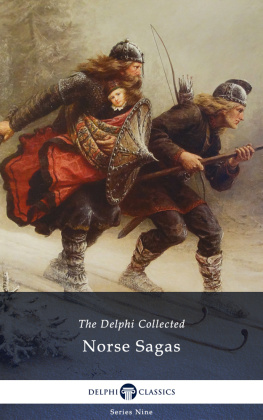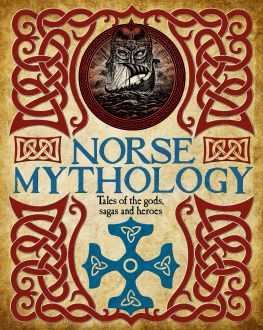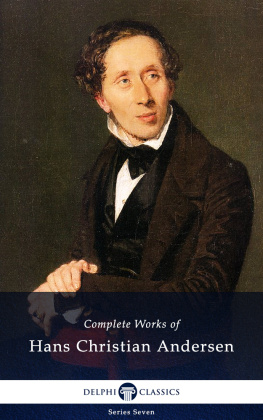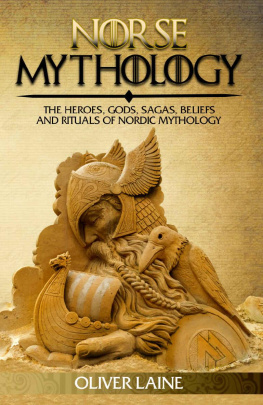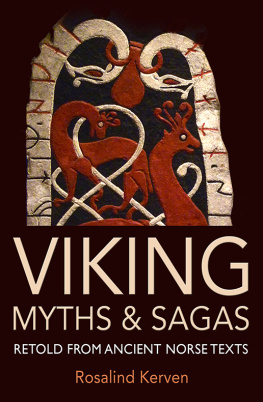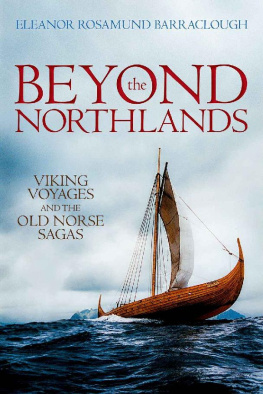
The Delphi Collected
NORSE SAGAS
(9 th to 13 th century)

Contents

Delphi Classics 2018
Version 1


Browse our Main Series

Browse our Ancient Classics

Browse our Poets

Browse our Art eBooks

Browse our Classical Music series

The Delphi Collected
NORSE SAGAS

By Delphi Classics, 2018
COPYRIGHT
Collected Norse Sagas

First published in the United Kingdom in 2018 by Delphi Classics.
Delphi Classics, 2018.
All rights reserved. No part of this publication may be reproduced, stored in a retrieval system, or transmitted, in any form or by any means, without the prior permission in writing of the publisher, nor be otherwise circulated in any form other than that in which it is published.
ISBN: 978 1 78656 101 5
Delphi Classics
is an imprint of
Delphi Publishing Ltd
Hastings, East Sussex
United Kingdom
Contact: sales@delphiclassics.com

www.delphiclassics.com
Kings Sagas

Skipanes on Eysturoy, Faroe Islands according to the Sverris saga, Sverre was born in 1151 to Gunnhild and her husband Uns, a comb maker from the Faroes.
Sverris saga

Translated by John Sephton, 1890
The Kings sagas (Kongesagaer) tell of the lives of legendary and mythological Nordic kings. They were composed during the twelfth through the fourteenth centuries in Iceland and Norway. One of these texts is the Sverris saga , concerning the life of King Sverre Sigurdsson of Norway (11771202) and it is the main source for this period of Norwegian history. The saga was initially begun in 1185 under the kings direct supervision, though it is not known when it was finished, but presumably it was well known when Snorri Sturluson began writing his Heimskringla in the 1220s, as Snorri ends his account where the Sverris saga begins. Therefore, the saga is contemporary or near-contemporary with the events it describes. Though the saga is clearly written by an author sympathetic to Sverres cause, the strict demands of the genre ensure some degree of impartiality.
The first distinct part of the saga is called Grla and concerns events until the aftermath of Sverres first major victory at the Battle of Kalvskinnet outside Nidaros in 1179. Central to this part is Sverres claim to be the son of King Sigurd Munn and his struggle against his rival claimant Magnus Erlingsson. Grla is written in a unique style that seems to be inspired by the long medieval tradition of hagiography. The style and focus of Sverris saga is very unlike that of the earlier Norwegian synoptics. Instead of narrowly focusing on the king and major events of state, the saga is a detailed biography, particularly in its description of battles, while featuring a large cast of characters, elaborate scenes and dialogue.

A page from one of the preserved manuscripts of the saga, AM 81 a fol.

Trondheim, Norway the Battle of Kalvskinnet occurred in 1179 on Kalvskinnet, an area west of Nidarosdomen in what is today the centre of Trondheim.
CONTENTS

Head of Sverre Sigurdsson from the octagon in Nidarosdomen, c. 1200

Coin of Sverre, Middelalderen. Christiania, 1865
PROLOGUE.

H ERE WE BEGIN to speak of events which happened a while ago, within the memory of the men who related them for this book; to speak, that is, of King Sverri, son of King Sigurd Haraldsson. The beginning of the book is written according to the one that Abbot Karl Jonsson first wrote when King Sverri himself sat over him and settled what he should write. The story has not come far [from its source]. It tells of certain of his battles, and as the book advances, his strength grows, foreshadowing the greater events. They therefore called this part of the book Gryla, that is, bugbear. The latter part of the book is written according to the relation of those who remembered what happened, having actually seen or heard it, and some of them had been with King Sverri in battles. Some of these stories were fixed in memory, having been written down directly the events occurred, and they have not been altered since. Possibly, if this book is seen by those who have full knowledge of the events, they may think many matters passed over hastily, and many left untold which they regard as worthy of mention; they may well cause these to be written down if they wish. And though, in telling of battles against large numbers, some things are here said to have occurred otherwise than seems most probable, let all know of a certainty that nothing has been added. To us it seems probable that the stories are true which are told in books concerning famous men who lived in old times.
THE SAGA OF KING SVERRI
Sverri s birth, and early life in the Faereys.

Next page
